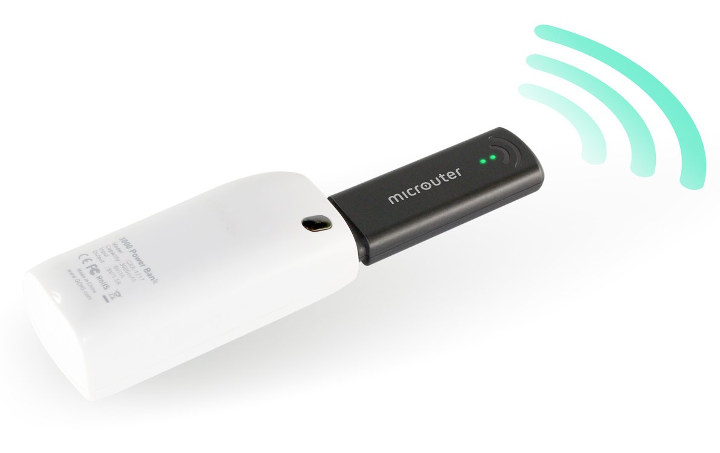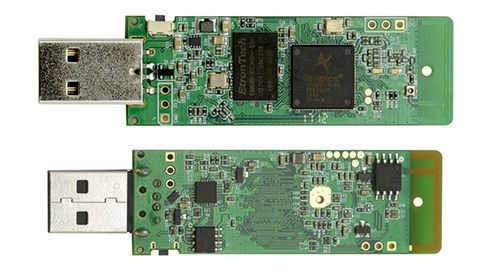There are plenty of small low cost routers capable of running OpenWrt, including the TP-Link WR703N or Marstek MPR-N9 model which we covered several year ago. GL.inet also made several tiny routers that ended up being supported by OpenWrt, including their GL-USB150 microrouter that looks like a USB flash drive, but is really an Atheros AR9331 router that can be powered by any USB ports.
 GL-USB150 microrouter specifications:
GL-USB150 microrouter specifications:
- CPU – Qualcomm QCA9331 (Atheros AR9331) MIPS processor @ 400MHz
- System Memory – 64MB DDRII
- Storage – 16MB NOR Flash
- Connectivity – 2.4GHz 802.11b/g/n WiFi up up 150Mbps transmission rate
- Power input – 5V/1A via USB port
- Power consumption – <1W
- Dimension – 82x24x11mm
- Weight – 10 grams
There’s no Ethernet port, no extra USB port to add 3G/4G connectivity, and the microrouter can either be accessed wirelessly when connected to a power bank, or via Ethernet over USB when connected to a computer. GL-USB150 microrouter is mostly sold as an OpenVPN client based on OpenWrt, but another use case is penetration testing, and Mason Jeffers Taylor purchased a sample for this purpose.
 That also means you should be wary if you see an unfamiliar USB flash drive in your office, as it could be used by bad actors, and you may want to check for USB flash drive-like camera / microphone spying devices too while you are at it :).
That also means you should be wary if you see an unfamiliar USB flash drive in your office, as it could be used by bad actors, and you may want to check for USB flash drive-like camera / microphone spying devices too while you are at it :).
If the device is potentially interesting to you, it’s available on Amazon for about $22.50, as well as Aliexpress and GL.inet own store for under $30. You’ll find a few more details including the user guide on the product page.
Via Hackaday and Theguyuk

Jean-Luc started CNX Software in 2010 as a part-time endeavor, before quitting his job as a software engineering manager, and starting to write daily news, and reviews full time later in 2011.
Support CNX Software! Donate via cryptocurrencies, become a Patron on Patreon, or purchase goods on Amazon or Aliexpress




